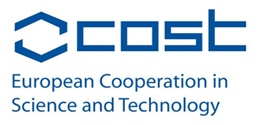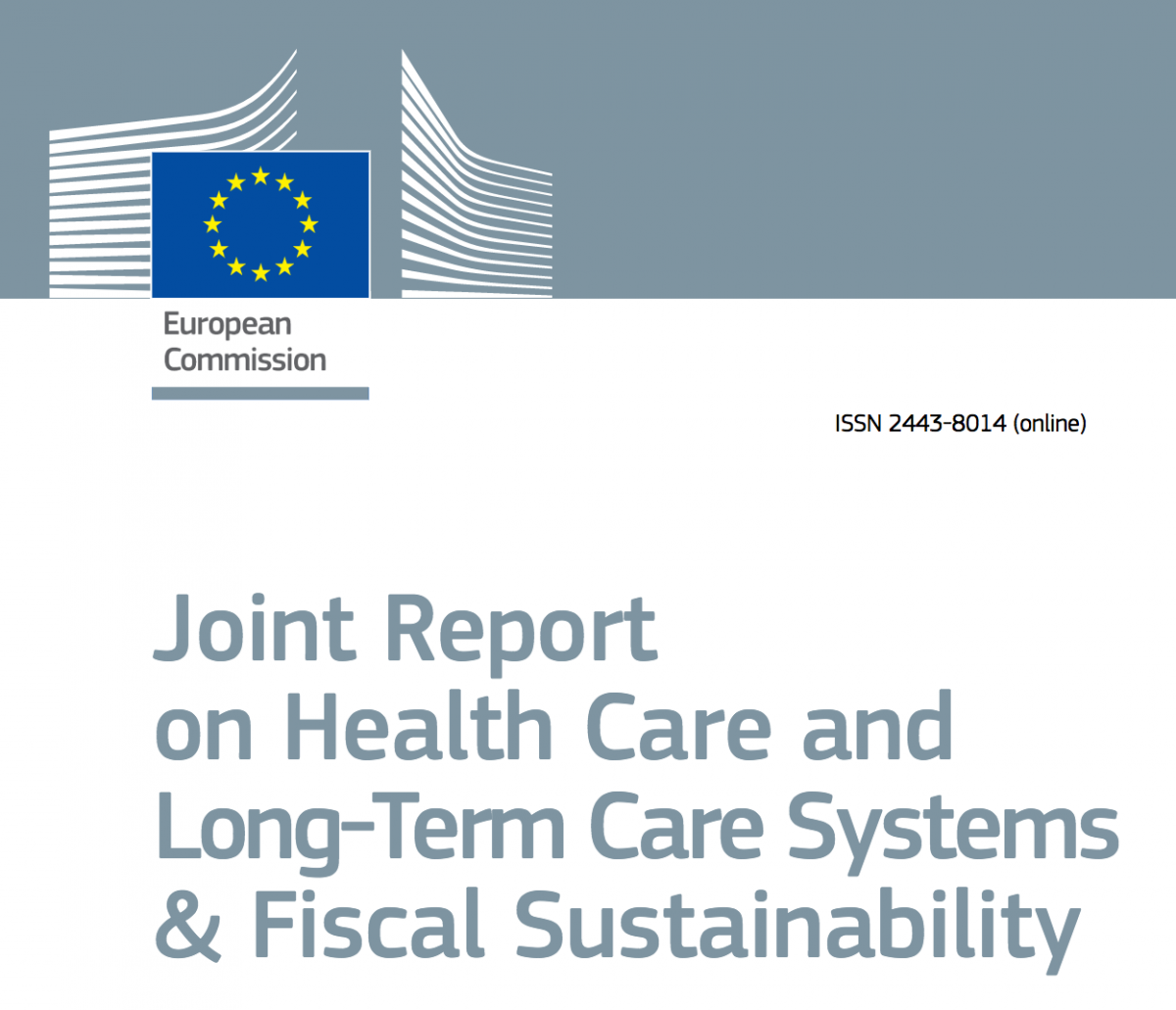EAHP EU Monitor - 24 October 2016
 The EAHP EU Monitor is a regular round up of news relevant to hospital pharmacy in Europe.
The EAHP EU Monitor is a regular round up of news relevant to hospital pharmacy in Europe.
You can subscribe to receive the EAHP EU Monitor by email HERE.
 Second meeting of COST Action on medicines shortages takes place in Bucharest
Second meeting of COST Action on medicines shortages takes place in Bucharest
Over 35 experts, from 22 countries, across a wide mix of disciplines, recently met in Bucharest, Romania, for the second meeting of the COST Action on medicines shortages.
A COST Action is an initiative of the long-standing European programme 'Cooperation in Science and Technology'. Operating for over 40 years, the programme gives scientists the opportunity to embark upon bottom-up, multidisciplinary cooperation across all science and technology domains. A COST Action on the topic of medicines shortages launched in April 2016 and set itself the tasks of:
- Improving understanding of the medicines shortages landscape in Europe (led by Prof Dr Isabelle Huys, Belgium);
- Investigating medicines shortages with API and manufacturing related shortages (led by Prof Dr Claude Farrugia, Malta);
- Understanding more about the nature of procurement related disruptions (led by Mr David Stead, United Kingdom);
- Exploring the Clinico-pharmacological needs related to medicines shortages (led by Mr Nenad Miljkovic, Serbia); and,
- Measuring the impact of shortages on outcomes (led by Dr Mina Gaga, Greece).
The second meeting of the COST Action, held in Bucharest on Thursday 29th September, was an opportunity for the respective Working Groups taking up these challenges to meet and further plan activities.
Speaking after the meeting, Professor Helena Jenzer, Chair of the Action, remarked:
"The meeting was a productive coming together of researchers, practitioners and other interested parties from across Europe impacted by medicines shortages. The way ahead for the various Working Groups was clarified, and the Action is now well positioned to expand its reach to other stakeholder communities, such as Early Career Investigators. If there are PhD and MSc candidates working in the area of medicines shortages, we want to hear from them! The Action will also continue to make outreach to industrial, manufacturing and patient interests. An ongoing focus will also be placed on integrating national research into the COST Platform."
More information about the COST Action on medicines shortages is available HERE.
Initial expressions of interest in being involved in the COST Action should be made to Helena [dot] Jenzer [@] bfh [dot] ch
Expressions of interest in involvement are especially welcomed from:
- Currently unrepresented European countries such as Bulgaria, the Czech Republic, Estonia, Finland, Hungary, Iceland, Italy, Luxembourg, the Netherlands and Norway;
- Early Career Investigators; and,
- The pharmaceutical industry.

European Commission opens consultation on EU Health Technology Assessment cooperation
The European Commission is inviting stakeholders and civil society to provide comment and feedback on plans to enhance cooperation between European Union (EU) member states in the area of health technology assessment (HTA).
Health technology assessment (HTA) measures the added value of a new health technology in comparison to existing technologies/current standard of care. HTA is defined as a multidisciplinary process that summarises information in a systematic, unbiased and robust manner about the medical, economic, organisational, social and ethical issues related to the use of a health technology. The goal of HTA is to support decision makers at national, regional or local level in their efforts to ensure that patients are treated with the best available treatment while keeping the health budgets under control/in balance. HTA also encourages economic stakeholders to focus their research on areas where they expect significant innovation.
The Commission's consultation is particularly interested in receiving experiences of the current operation of HTA systems, improving understanding of stakeholder needs (including those of healthcare professionals), and achieving public scrutiny of the suggested future of EU HTA cooperation set out in an 'Inception Impact Assessment' document.
The deadline for comments to be received is 13th January 2017.
More information about the consultation is available HERE.
Readers of the EAHP EU Monitor should also be aware that Health Technology Assessment will be the subject of a seminar at the 22nd Congress of EAHP in Cannes 22nd-24th March 2017
The seminar "Health technology assessment as a tool for decision making at central and local levels" will investigate the various forms of HTA currently in existence across Europe, outline the hospital pharmacist involvement in these processes and describe impact monitoring of the introduction of a new technology in clinical practice.
The first keynote speech of the Congress also takes as its subject 'New medicines at any cost?' Dr Suzanne Rose, Director of Essential Medicines and Health Products at the World Health Organization will present approaches to quantify innovation as well as strategies to balance different stakeholder interests in respect to achieving fair prices for medicines.
More information about the Congress is available at http://www.eahp.eu/congresses.
Early bird registration discount is available until 1 December 2016.

European Commission publish report on long term challenges for healthcare
The European Commission's Directorate-General for Economic and Financial Affairs (DG ECFIN) has published a report on the common challenges faced by EU Member States in maintaining the financial sustainability of their health systems. The report includes a variety of recommendations for meeting these challenges, including for the hospital sector, and on the cost of pharmaceuticals.
For the hospital sector
The report reemphasises familiar themes such as the need to reduce unnecessary hospitalisations via strong primary care systems, and the need to invest in "cost -effective ICT and eHealth solutions which not only enable better coordination but provide a possibility for seamless integration".
The report highlights common goals of EU health systems as being:
- Shifting excessive activity of acute inpatient to outpatient care services;
- Reallocating resources from inpatient to outpatient care, and;
- Improving the cost-efficiency of hospitals.
Whilst noting that improvements have occurred in EU health systems in respect to data availability, information and monitoring, the report calls for further progress, including "the systematic creation of interoperable electronic records, and, more generally, the use of eHealth".
Overall, in respect to hospital care, the report makes the recommendation:
"The sustainability of hospital care should be enhanced by improving financing arrangements, through combination of activity-based payments, global budgets and pay-for-performance schemes, and by reducing operational costs, also through extending the use of centralised public procurement, price transparency and strengthening the fight against corruption, fraud and misuse of public resources. Systematic monitoring, comparison of hospital performance and benchmarking is key to improving the sector's performance. Policies should be deployed to reduce the demand for unnecessary emergency care".
Pharmaceuticals
On pharmaceutical costs, the report warns: "Over the next years, savings opportunities based on more traditional pharmaceutical policies will be reduced dramatically in the EU. First, the number of patent expiries will go down substantially, reducing the potential of cost-containment based on traditional "genericisation" of medicines. Second, a high number of new medicines are forecast to be launched in the next years, creating higher financing needs compared to the last decade.Third, the nature of new medicines is gradually changing, as innovations are based on relatively costly biopharmaceuticals rather than small molecule medicines, and increasingly target smaller populations".
The report therefore advises policy makers to: "employ pre-launch activities that provide a forward-looking perspective on new medicines in development and post-launch activities that address the value for money and the rational use of medicines. The decision to pay for a medicine with public money should be transparent, based on relevant criteria and revisable. Budget impact analysis should play a standard role in the impact assessments of medicines".
The report also encourages EU Member States to enhance cooperation in the employment of health technology assessment as a cost-containing mechanism, and to further explore possible strategies on voluntary joint price negotiations by coalitions of Member States.
A related volume of country-specific documents accompanies the report.
The full report, including accompanying volumes, is available HERE.
The press release for the report, and accompanying infographics and video, is available HERE.

EJHP: Incorrect aseptic techniques in medicine preparation and recommendations for safer practices
The online first edition of the European Journal of Hospital Pharmacy (EJHP) has published a systematic review examining the literature for incorrect practices in aseptic drug preparation and administration as well as recommendations for safer practices in hospitals.
The review discusses many appropriate and enhanced practices in aseptic drug preparation and administration. As the change for the better in contamination rates of administered medicines seems to be challenging to achieve in hospitals, the review suggests the potential need for international procedures for safe parenteral practices.
Article available HERE.




